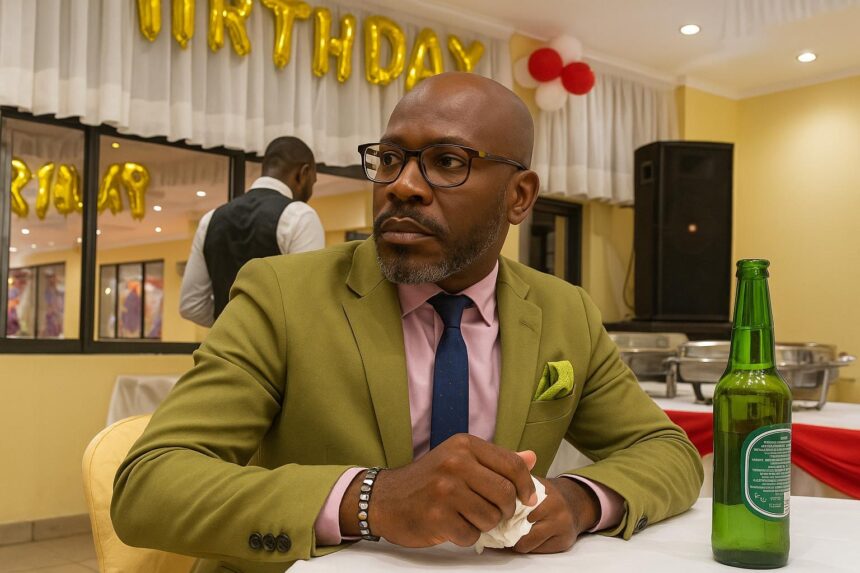A Legacy Tuned to Images
Gilles Djibril Miakalououa lowers his voice when he recalls the melody of his late mother, the singer Jacquito Mpoungou, yet his eyes ignite at the mention of cinema. For the 46-year-old filmmaker, images, not notes, have become the preferred instrument to address Congolese society.
- A Legacy Tuned to Images
- From Stage Boards to Storyboards
- The Hurdle of Financing
- Projects Awaiting the Green Light
- A Call for National Film Policy
- Public Broadcaster’s Role
- Government Incentives in Perspective
- Education and Skills Pipeline
- Digital Platforms and Diaspora Markets
- Soft Power Implications
- Regional Co-productions
- Audience Engagement
The choice is deliberate. “I integrate music into film,” he smiles, paraphrasing the answer that has followed him since his first press interview with Les Dépêches du Bassin du Congo in Brazzaville last summer (LDBC, 2023). In his view, cinema synthesises rhythm, dialogue and visual rhetoric more effectively than the stage.
From Stage Boards to Storyboards
Miakalououa’s path began in the 1990s inside the Troupe Artistique Le Renouveau, directed by veteran playwright Jean-Claude Loukalamou, a companion of the celebrated Sony Labou Tansi. Theatre offered discipline, he says, but its audiences were shrinking in a capital increasingly attracted to television drama.
A chance casting by the late General Norbert Dabira for the unreleased feature Le Destin took him from footlights to close-ups. The film never reached the screen, yet the young actor gained momentum and a recommendation to a Cameroonian director then collaborating with Digital Radio-Télévision du Congo.
There he wrote dialogue, annotated scripts and observed shots, effectively completing an informal apprenticeship. Guidance from revered pioneer Sébastien Kamba, whose 1973 movie La Rivière Riba set an early benchmark for Congolese cinema, reinforced his technical grounding (African Film Heritage Project, 2022).
The Hurdle of Financing
Despite the skill set, money remains elusive. The short film Congo Lousse, a satirical take on sparring producer-director relations, has lingered months in post-production for lack of editing funds. “Rehearsal spaces are scarce and patrons even rarer,” he concedes, echoing sentiments recorded by UNESCO’s 2021 African Film Report.
Projects Awaiting the Green Light
His completed feature script, Tara Mé, examines jealousy inside a blended household, a theme he deems universal. A woman favours her own child, unintentionally sealing the fate of her stepson. Studies from the state-backed Centre National du Cinéma et de l’Image Animée indicate local viewers favour such intimate drama.
Ambition stretches further. Ntémbé Za Wa, a 52-episode serial centred on a widow navigating inheritance norms, could supply sustained employment to dozens of technicians. Yet without a commissioning broadcaster or equity partner, only scripts and mood boards exist. The situation typifies a continental funding gap measured at 12 billion USD annually (AfDB, 2022).
A Call for National Film Policy
For Miakalououa, the remedy lies in comprehensive industry statutes. He urges ‘assises du cinéma’—a professional convention able to codify contracts, actor remuneration and distribution certificates. The idea resonates with the 2020 Brazzaville Cultural Industries Declaration, which highlighted legal clarity as a prerequisite for attracting domestic pension funds into creative ventures.
Public Broadcaster’s Role
Tele Congo, the national broadcaster, currently schedules mainly imported soaps during prime time. Producers argue that even a modest allocation for local drama would multiply employment, reinforce cultural diplomacy and feed streaming platforms hungry for francophone African content. The Ministry of Communication has signalled openness, yet budget envelopes remain under negotiation.
Government Incentives in Perspective
Across the continent, incentives range from Senegal’s 30 percent cash rebate to Rwanda’s one-stop film office. Congo-Brazzaville’s 2022 Finance Law introduces a five-year tax holiday for audiovisual start-ups, a measure welcomed by guilds. Analysts suggest implementing decrees will determine whether the incentive becomes a catalyst or stays symbolic (Jeune Afrique, 2023).
Education and Skills Pipeline
Training, once a bottleneck, is widening. The regional École Supérieure des Arts et Métiers has doubled enrolment since 2019, while private workshops organised with the French Institute offer modules in sound design. Miakalououa mentors students himself, insisting that a mass of technicians will lower production costs and raise bargaining power.
Digital Platforms and Diaspora Markets
Streaming giants have yet to open offices in Brazzaville, but diaspora demand is measurable. A 2022 report by the GSMA estimates six million Central African expatriates routinely consume mobile video. Partnerships with Orange and MTN are under discussion to host local catalogues on low-bandwidth platforms, according to industry insiders.
Soft Power Implications
Diplomats stationed along the Congo River observe that film can reinforce regional stability by projecting shared narratives. “Culture articulates belonging where politics may stall,” comments an official at the Economic Community of Central African States, requesting anonymity. The potential aligns with President Denis Sassou Nguesso’s National Development Plan, emphasising cultural entrepreneurship.
Regional Co-productions
One avenue to bypass domestic scarcity is co-production with neighbouring states. Congo and Gabon already share linguistic markets; Angola contributes equipment through Lusophone networks. A draft memorandum between Brazzaville’s Centre National du Cinéma and the Kigali Film Office proposes crew exchanges exempt from visa fees, a small administrative breakthrough.
Audience Engagement
Meanwhile, nightly pop-up screenings in Makélékélé district draw new crowds eager for authentic local stories.





















